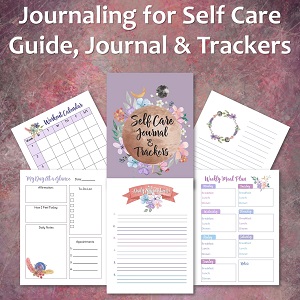 It is almost impossible to be someone who doesn’t deal with any type of stress, day in and day out. After all, we live in a fast-paced society that values the ability to keep going without having to take any breaks or deal with any personal issues.
It is almost impossible to be someone who doesn’t deal with any type of stress, day in and day out. After all, we live in a fast-paced society that values the ability to keep going without having to take any breaks or deal with any personal issues.
However, many women are unable to reach these ridiculous expectations and instead have to deal with the negative consequences on a daily basis.
What are some of the consequences that an overly-stressed woman has to deal with? Well, for example, a woman who is stressed could deal with hair loss, weight gain, irregular periods, depression, and decreased fertility, to name a few.
Stress is a serious health problem that plagues many of today’s women and needs to be treated as such.
Here are some of the negative side effects that stress can have on your mind and body:
- Reduced sex drive
- Stomach issues
- Fatigue
- Chest pain
- Irritability
- Depression
- Increased anxiety
- Lack of motivation
- Focus issues
- Mood swings
- Muscle tension
- Overwhelm
- Sadness
- Overeating
And many more!
Therefore, I have published this guide to help you find some ways that you can relieve your stress naturally. If you are feeling over-stressed and you are suffering because of it, here are a few methods that you may want to try at home.
The following information is going to provide insight into some natural ways to relieve stress, especially for women.
Keep reading to find out more about each of these natural stress relief methods and how they might be able to help you improve your quality of life.
1 – Practice Mindfulness
Mindfulness exercises are all the rage these days. Exercises that include mindful breathing methods and periods of relaxing silence or peaceful music have been proven to improve the way that you handle and react to stress.
The best part about most mindfulness exercises is that you can do them anywhere. Whether you are in the office, the grocery store, or in your bed, you can always fit in a mindfulness exercise. What are some these exercises?
Meditation
Meditation is the practice of quieting the mind and focusing on the physical rather than on the mental. All you need to do to meditate successfully is to find a quiet spot, let your thoughts move freely through your mind, focus on your breath, and practice for at least 5 minutes each day.
Meditation is really easy to get into, so you don’t need to worry about being perfect right from the start. Just like anything else, it does take a little practice.
Coloring Art Therapy
Coloring books are great for artistic people who are suffering from high levels of stress. Why? Some psychologists say that is a form of art therapy or color therapy that is designed to reduce anxiety. You can find adult or zen coloring books everywhere and there are plenty of designs for you to choose from.
The great thing about coloring art therapy is that it is inexpensive and can be done on anything. All you need are some coloring books or sketch pads, and whatever you like to color with, from colored pencils to markers or even crayons.
Mindful Breathing
Your next option is mindful breathing, which is similar to meditation, but it focuses more on relaxing breathing exercises. While meditation and breathing often happen together, this is not always the case. Mindful breathing is a very effective method to calm the body’s nerves and provide you with relaxation anywhere. Here is one that we recommend.
Journaling
You can also use writing as a way to embrace mindfulness, by writing about what you are feeling or experiencing right now in this moment. Journaling has so many benefits, especially for stress, that it is often recommended for everyone.
With journaling, you are able to jot down your thoughts and feelings to keep you mindful, but it can also be therapeutic for many other reasons as well, including figuring out why you are dealing with so much stress in the first place.
This is by no means a comprehensive list and there are plenty more mindfulness exercise ideas on the web.
One common issue (and one thing that should be mentioned in this section) that people encounter when doing mindfulness exercises is an apparent lack of benefits. They go through the motions of the exercise and feel that there is nothing happening to reduce their stress. Then, they quit just as quickly as they started and never return to these exercises.
While some exercises do not work for certain people, a lot of these exercises take time to work on some people. For example, you cannot sit down, meditate, and expect to feel all of the weight lift off of your shoulders.
Meditation is an exercise that must be practiced consistently in order for you to experience a change in the way you feel. Don’t get discouraged if something is not working for you immediately. Stick with it for a while and see if that changes. If it doesn’t try another exercise until you find something that does work for you.
2 – Switch to a Healthier Diet
The type of foods that you consume can affect your stress levels more than you might think. If you eat junk, you are going to feel terrible. If you make healthier food choices, you are going to feel better physically and mentally. In some ways, there are foods you should avoid, but others are simply good to add to your diet.
Here are a few suggestions that will get you on the path to a better diet:
- Don’t be afraid of dark chocolate – It provided antioxidants and can help you feel like you are getting a treat without the guilt of other forms of sweets.
- Have nuts and berries – These are both good for you and contain a lot of important nutrients that will not only do your body good, but help reduce stress as well.
- Choose fruits with vitamin C and antioxidants like oranges. These are easy to add to smoothies, fruit bowls, or just have on the side.
- Other healthy foods you should feel free to enjoy are oatmeal, avocado, and fish.
It’s often the foods that keep you full and focused that are good for your stress levels. If you think that you probably shouldn’t be eating it, then it probably isn’t good for your stress either. However, that doesn’t mean that you can’t treat yourself every once in a while.
If you feel like eating a tub of ice cream or a whole funnel cake, go ahead. Just don’t make a habit out of it!
Skip the Diet
If you have an unhealthy relationship with food and have a habit of emotional eating, you might not want to have a strict diet, even if you are trying to lose weight.
Dieting often restricts categories of food, which might work in the short-term, but long-term can have adverse effects on your stress levels. While you are dieting, it can exacerbate your stress by making you feel like you are missing out. Then if you over-indulge or binge after a period of dieting, that also makes your stress worse.
Instead of dieting, make small, healthy changes to your daily routine, and keep restricting to a minimum. Focus on balance and adding in healthier foods, instead of taking away certain types of foods.
3 – Add Exercise to Your Daily Schedule
It’s no secret that exercise is the remedy for almost any kind of malady. Exercise produces endorphins which help to give you a mood boost that fights off the negative side-effects of stress. It also helps to battle the physical effects that come with high levels of stress.
The great thing about exercise is that it is available for everyone no matter what your age or level of experience is. Taking a walk every day will produce the same effects as going to the gym and lifting heavy weights. However, it is important that you remain consistent in your efforts and that you try to exercise for at least 30 minutes each day.
Unless you are trying to lose weight or improve your physique, this should be plenty of time to help you relieve stress and improve your mood. Also, be careful not to overexert yourself. If you are overweight or if you have other health problems that prevent you from engaging in difficult exercises, don’t try to push through them. This can result in injury. Do what is best for you and listen to your body.
Recommended Exercises
While any type of physical activity can be good for managing your stress, there are some highly recommended by people who have used exercise to help reduce their stress naturally. This is by no means a complete list, but just some suggestions if you are not sure where to start:
- Yoga
- Pilates
- Walking in a scenic area
- Running
- Hiking
- Dance class
- Walking the dogs
4 – Consider Aromatherapy for a Quick Fix
Aromatherapy has become so popular that you can pretty much walk into any store and find essential oils or machines designed for it. What is aromatherapy? It is a form of therapy that uses calming or energizing scented oils for baths, massages, or just for smelling.
If you decide that this is something you would like to pursue, some essential oils that come highly recommended for stress relief include:
- Lavender
- Rose
- Sweet orange
- Chamomile
5 – Grab a Journal or a Friend
Natural stress relief is just a phone call or a book away for most. Journaling and venting are both great methods that people can use to reduce their stress levels. However, these methods will not always be effective for everyone.
Let’s imagine, for example, that you have had a terrible day and you are venting to your friend. As you explain to them what has happened, you become angrier and angrier. The anger doesn’t go away. Rather, it continues to boil inside of you and you focus on it rather than focusing on solving the underlying issues behind the anger and stress.
The same goes for journaling. Writing down your issues with the intent of focusing on the problems rather than a solution can do more harm than good. If you decide to use either of these venting methods, make sure that you are approaching your stress with the proper mindset.
When it comes to venting to a friend, we have no advice to offer. (Except that you should find someone who is trustworthy and who will listen intently.) When it comes to journaling, however, there are plenty of great prompt recommendations for stress relief.
Here are some favorites:
- What are some things in my life that are negatively impacting my mental health?
- What are some ways that I can better care for myself?
- What are some of the more positive things taking place in my life?
- What am I grateful for?
- What are some of my greatest challenges right now and how can I overcome them?
If you find that these are working great for you, there are plenty more examples scattered across the internet!
6 – Be More Selective About How You Spend Your Time
It’s easy to become stressed when you are filling up your plate with too many things to do, especially when those things are extremely stressful. Some things, such as work or your family, can’t be bypassed. Other things, on the other hand, can most certainly be cut out of your schedule if they are only contributing to your growing stress problems.
Take a look at your daily life. What type of activities do you fill your days with? Which of these activities are adding stress to your life rather than happiness? Can you go without these activities? While I don’t recommend cutting everything out of your life at once, try getting rid of these activities one at a time and see how you feel after they are removed.
If they are impacting your life positively and no problems arise as a result of their removal, keep them out. If life becomes more difficult because you’re lacking a certain activity, bring it back into your life.
That being said, you definitely shouldn’t tolerate overwhelming stress in any area of your life. For the activities that you can’t remove, sit down and think about the ways that you can reduce your stress levels when engaging in these activities.
There are always tricks you can use to reduce stress in even the most difficult situations. The only limit to what you can come up with is yourself!
7 – Consider Rescuing a Pet
If you haven’t already welcomed a pet into your home, you may want to consider it for stress relief. Being around pets is a method that has been proven to lower the hormone known as cortisol, otherwise known as the stress hormone.
This form of stress relief, however, is not recommended for everyone. If you have allergies or if you prefer not to be around animals, there are plenty of other recommendations on this list that will produce the same benefits.
Also, some pets are extremely energetic or suffer from separation anxiety and are prone to getting sick or destroying things when you are gone. These types of issues can add more stress to your life rather than reducing it. If you are wanting to bring a pet into your home, make sure to do your research and consider these points before you decide to take care of an animal.
Do Your Research!
The most important aspect of adopting a new pet is doing your research. If you don’t have the time or energy for a pet at home, then an animal requiring a lot of effort like a dog or cat might not be for you. However, if you do decide on a pet, rescuing is one of the best things you can do for them.
Find a Pet That Works for You
The next important thing to keep in mind when it comes to rescuing an animal is choosing one that works for you and your lifestyle. Just because you think rabbits are cute, doesn’t mean nit is the right pet for you.
Visit different shelters in your area, get to know the types of animals out there, and really think about how you can care for them and the type of needs they require before choosing.
8 – Find Something That Makes You Laugh Regularly
Laughter is the best medicine. It’s true! Laughter is the result of humorous situations that have the ability to relax our bodies and mind, release endorphins, and fight off negative emotions such as anger and sadness. It also feels amazing to do and almost anything can make us laugh if we look hard enough.
For some people, it can be hard to start laughing daily, especially if you are not accustomed to laughing. You can start trying to laugh daily by watching hilarious videos in the morning or by seeking out funny situations in your everyday life. Once you get used to laughing regularly, it will be impossible to stop.
Even better? Laughing with other people! Get your family together for a weekly movie night or have friends over for drinks and a game night. Go out to the movies or just have some conversation over coffee with your co-workers. All of this will help tremendously with managing your stress levels.
9 – Get Organized!
Stress can sometimes be the result of poor organization. For example, let’s assume that you work in a demanding job that requires you to schedule appointments, deal with a lot of paperwork, constantly speak with clients, and handle the financial aspects of business. If you don’t have proper organizational systems in place, it can be easy to get overwhelmed and stressed out.
Look at each area of your life and ask yourself, am I unorganized? Maybe you need more organization and structure in your relationship. Maybe you need to be more organized when it comes to your personal goals and desires.
Whatever aspect of your life is messy, take some time to sit down and figure out how you can put it in order. This will take time but once you have systems in place, you will feel a lot better.
10 -` Ditch the Caffeine
I understand that this is probably one of the tips where quite a few people draw the line. Ditch my caffeine!? Go through my mornings tired and unable to focus!? Yes, caffeine is definitely one of the most used and most valued substances in our fast-paced society. However, it may be one of the substances that are also adding to your stress levels.
As Dr. Christopher N. Ochner states in one article on the Shape website, “Caffeine is one of the safer stimulants out there. Unfortunately, any stimulant carries with it the side effect of anxiety, which obviously ruins your concentration. Caffeine in particular can make you jittery, nervous, and worrisome, which can occupy some of your thinking capacity.”
Caffeine is also known to cause issues with your ability to sleep soundly and can cause dehydration when you drink too much of it. Rather than having to deal with these problems every time you drink coffee or other caffeinated drinks, try turning to healthier drink alternatives.
For example, having a smoothie mixed with vegetable and fruits or brewing a cup of herbal tea can help you to feel energized without causing you to feel anxious as a result. If you have your heart set on having caffeine every day, try drinking a cup of green or black tea. This drink has caffeine but in much lower amounts that are less likely to affect you negatively.
Or, if you’re like me and absolutely refuse to give up coffee, drink only a couple of cups at the most shortly after rising – early in the day, and drink plenty of water throughout the day.
11 – Embrace Intimacy
Although it is still sometimes seen as an awkward topic to discuss, masturbation and sex are both wonderful methods to naturally relieve stress. You don’t really need direction here so we won’t provide any but we do recommend that you have sex with your partner at least once a week.
If you don’t have a partner, that’s no problem. Masturbation is just as great and can be done with even more frequency since you decide when to do it.
Even if you are in a committed relationship, masturbating by yourself can have a host of other health benefits that will also help to relieve stress. For example, women who masturbate regularly have an easier time reaching orgasm during sex and experience less pain during their menstrual cycle. “Regularly” means different things to different people but you should squeeze in a couple of self-love sections each week to reap the health benefits.
12 – Get a Massage
Massages have been used for centuries as a method to reduce stress and improve overall well-being. In fact, one study conducted on 22 volunteers found that after five minutes of massage therapy, the heartbeats and the amount of cortisol in the saliva of the volunteers had experienced a significant decrease.
Better yet, there is a large variety of massages that you can choose from. No matter whether you are someone who wants a Swedish massage or someone who needs a hot stone massage, try to squeeze in a session at least every week or two weeks to reap the benefits.
However, don’t allow yourself to break the bank trying to seek out the best massage sessions. If the cost of a massage is a little out of your reach at the moment, a massage from a friend or another tip on this list will do just as well.
13 – Take Herbs and Supplements to Relax and Improve the State of Your Mind
Herbs and herbal supplements are great for people who do not want to take medication or who suffer from serious side-effects when taking medication designed for stress and anxiety. Some supplements that you should seek out if you want to treat high-stress levels at home include:
- Magnesium
- Theanine
- Kava Kava
- Turmeric
- Basil
- Hemp or CBD oil
Please keep in mind that herbal supplements are not always safe. Although they are natural alternatives to chemical medications, they are still natural chemicals and have the ability to cause real damage if you don’t follow directions carefully. Do plenty of research and speak with your doctor before you attempt to add any herbal supplements to your daily diet.
14 – Make Getting Better Sleep a Priority
You might be over-stressed because you are trying to accomplish too much during the day after getting almost no sleep at night. According to experts, anyone from the age of 18 and onward should be getting at least seven to nine hours of sleep every night. That being said, there are people who can function on only a couple of hours. However, this is most likely not you and you should make sure that you stick to the recommendations above.
It should also be mentioned that quality of sleep is just as important as the number of hours that you get each night. If you have a mattress that is affecting your sleep and your body, seek out a mattress that supports you better and helps you fall asleep faster.
Also, try to find sheets, blankets, and pillows that make you feel more comfortable for a better sleep experience.
Stress is difficult to deal with. If it is allowed to go unchecked for too long, it can have a serious impact on both your mental and physical health.




